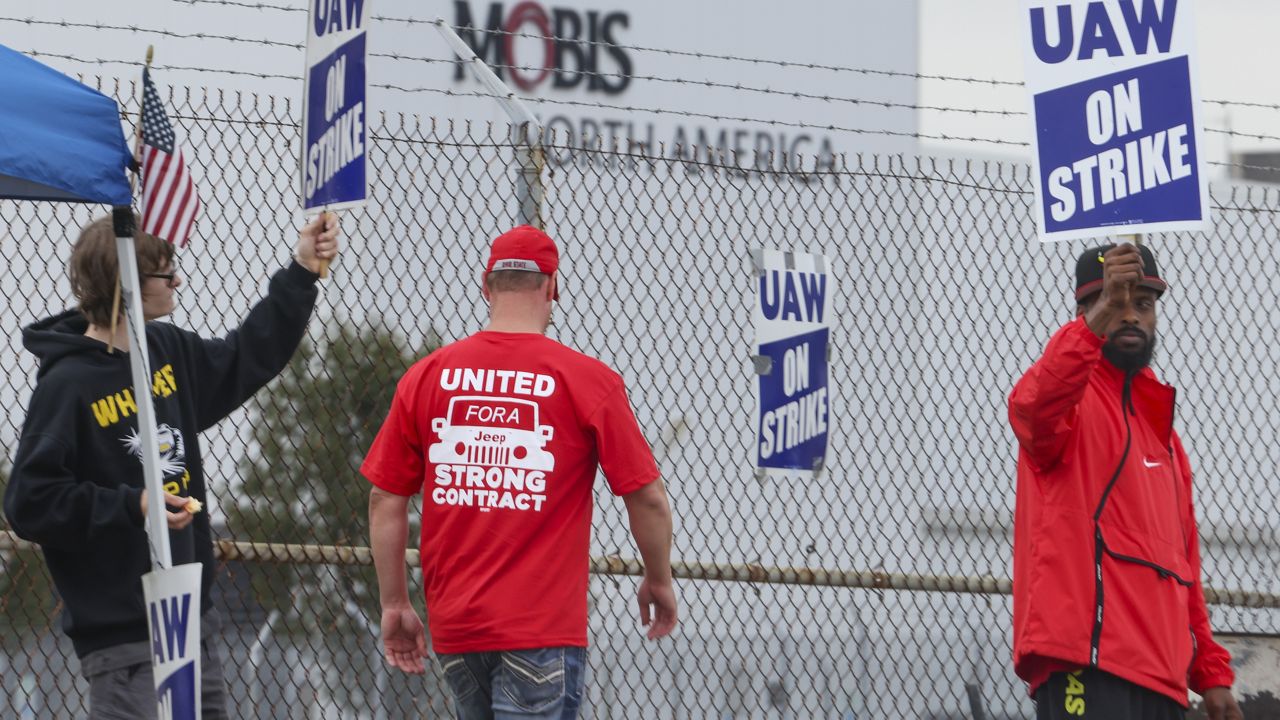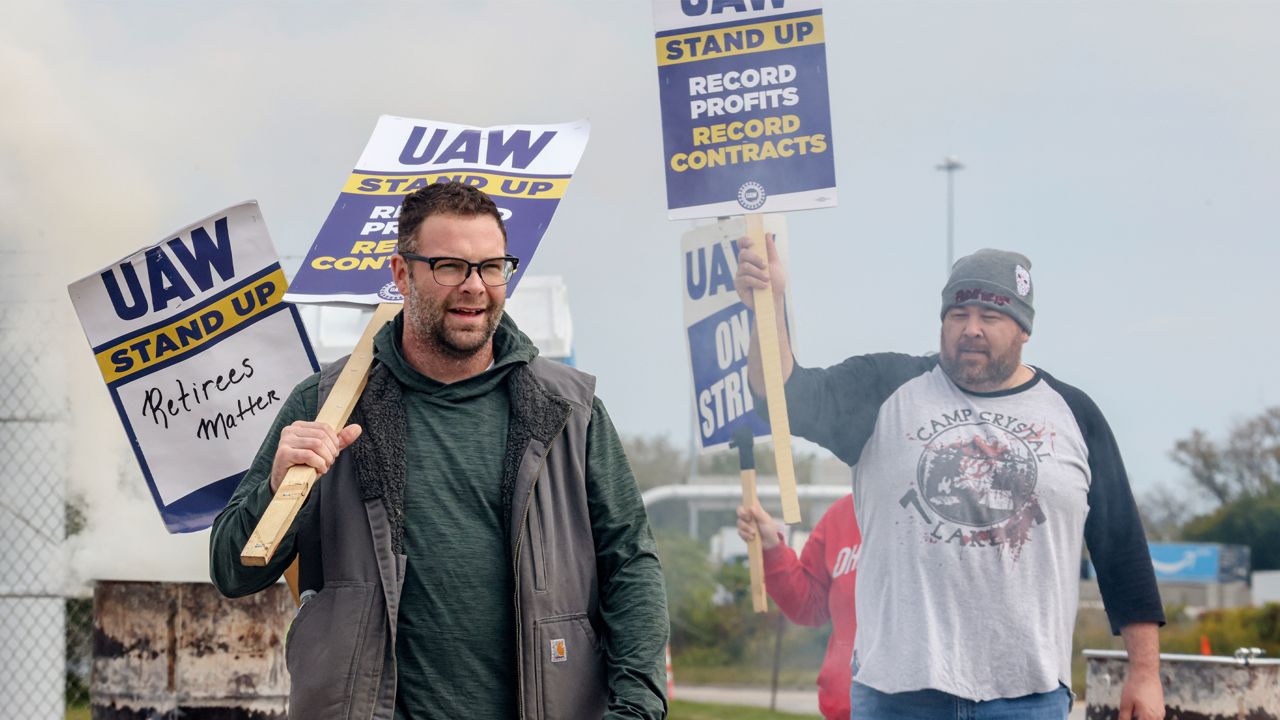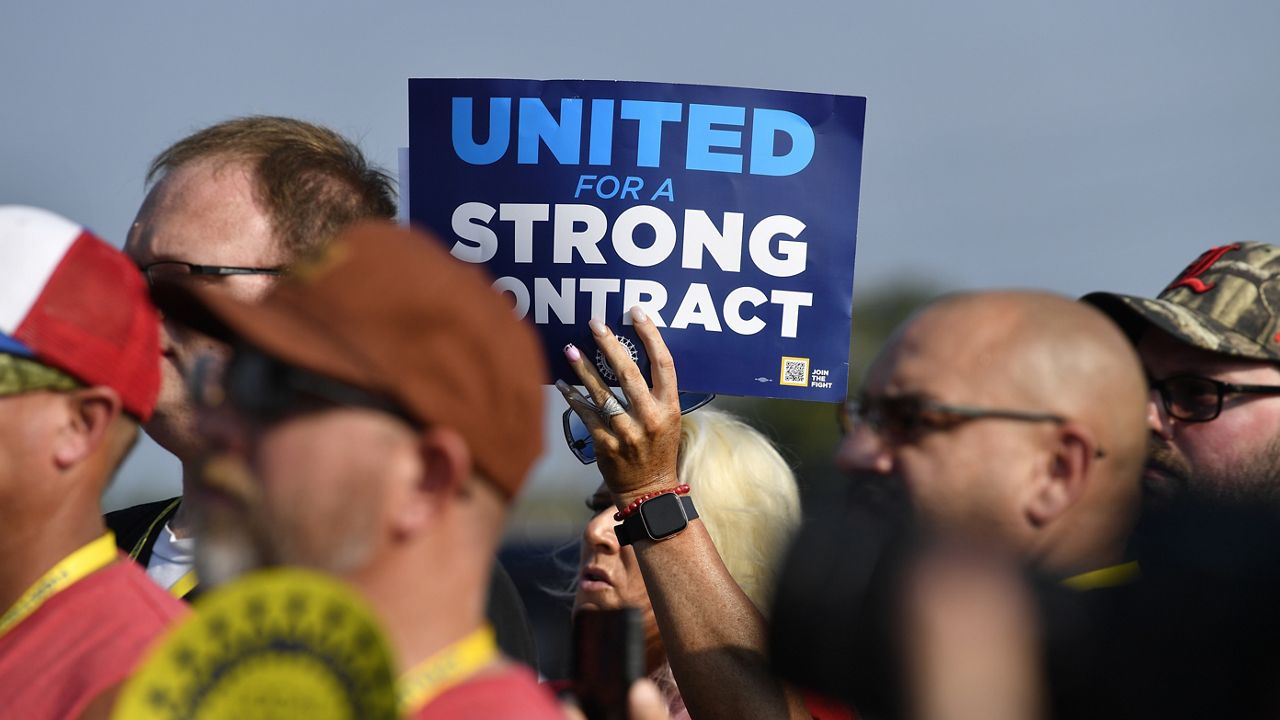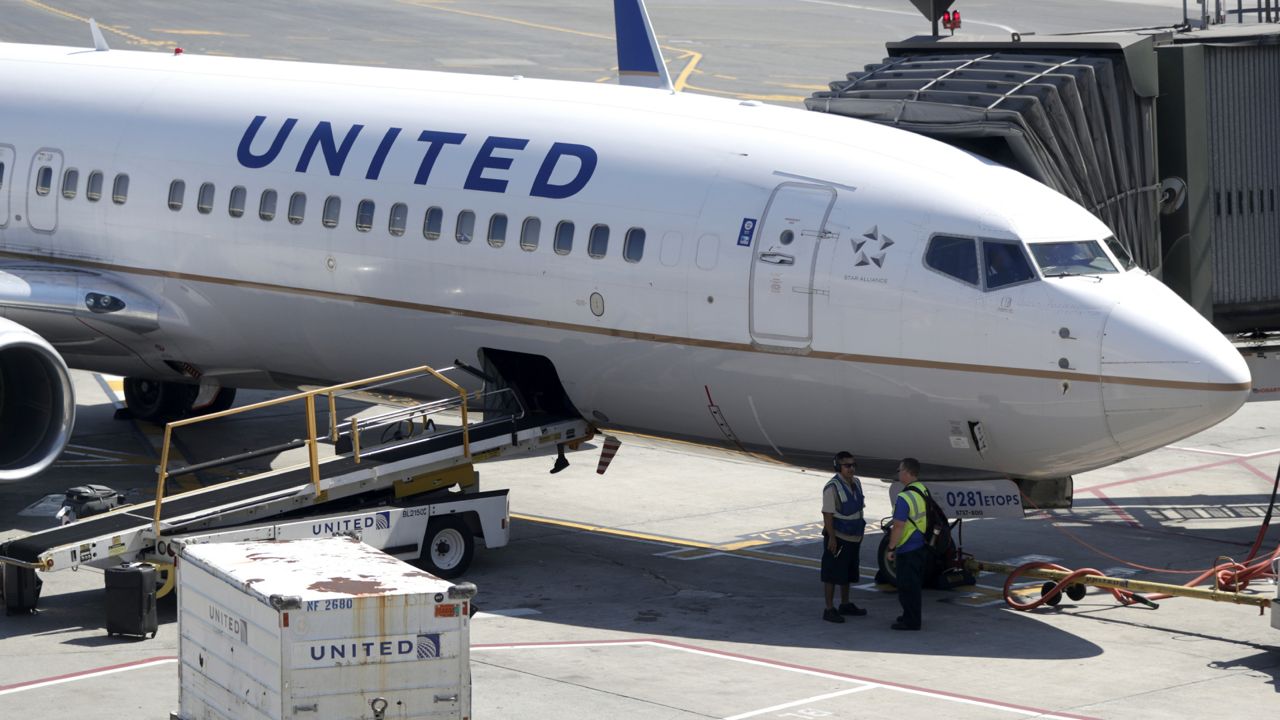An additional 7,000 United Auto Workers members will join the picket line Friday, UAW President Shawn Fain announced Friday morning.
Starting at noon Friday, workers at Ford’s Chicago Assembly Plant and at General Motors’ Lansing Delta Township facility will join the now two-week-old strike against Ford, General Motors and Stellantis.
“Over the last week, the vice presidents and your national negotiators and my office have been working night and day to bargain a record contract that reflects the record profits we have produced for the Big Three,” Fain said during a Facebook livestream. “Sadly, despite our willingness to bargain, Ford and GM have refused to make meaningful progress at the table.”
About 25,000 of the UAW’s 150,000 members will be striking as of Noon Eastern time Friday, barring any breakthroughs. The UAW strike began September 15 with 13,000 workers at three factories after the Detroit automakers failed to agree on the terms of a new contract. The strike expanded one week later with another 5,000 workers at 38 parts distribution centers in 20 states operated by General Motors and Stellantis.
“Negotiations haven’t broke down,” Fain said, adding that early Friday morning the union had made “significant progress” with Stellantis, including cost-of-living adjustments, the right not to cross a picket line, the right to strike over product commitments and plant closures as well as outsourcing moratoriums. “We’re excited about this momentum at Stellantis and hope it continues.”
In July, Fain presented each of the car companies with a list of 10 demands, including a 40% wage increase, cost-of-living adjustments, defined pension benefits for all workers, the right to strike over plant closures and more paid time off to be with families.
A week ago, Fain said negotiations with Ford had progressed enough that he did not expand the strike against the company. He said Ford agreed to reinstate the cost-of-living formula it had suspended in 2009 and also granted union members the right to strike over plant closures. The union also won additional job security in the event of layoffs, with both full-time and temporary workers receiving income security for up to two years including healthcare.
Ford also granted UAW members profit-sharing and the immediate conversion of current temporary workers to join in profit sharing after 90 days of employment.
With no further progress at Ford, UAW expanded its strike to its Chicago Assembly plant, which is the company’s oldest continually operated manufacturing facility. In operation since 1924, it currently makes Ford Explorers and Lincoln Aviators. The GM plant in Lansing, Mich., makes the Chevrolet Traverse, GMC Acadia Limited and Buick Enclave.
“We knew it was unlikely this was going to be quick,” Fain said.
Last week, Fain said GM and Stellantis had rejected all of the union’s job security and profit-sharing proposals as well as the proposal to convert temporary workers to full employment. He also invited President Joe Biden to visit the picket line, which the president did earlier this week.
“The most powerful man in the world showed up for one reason only: because our solidarity is the most powerful force in the world," Fain said Friday. "When we stand together united in the cause of economic and social justice, there’s nothing we can’t do.”
During his visit, President Biden encouraged the striking workers to “stick with it because you deserve the significant raise you need and other benefits.”
Biden’s chief rival for the White House next year, former President Donald Trump, also met with auto workers at a non-union parts supplier in Michigan this week.









